Well, hello there!
Welcome back! We are so happy you’re here we wanted to make you laugh with this wildly hilarious joke…
Q: What do you call a cheese that is not yours?
Can’t wait to hear the punch line? Keep reading to find out the answer!
Weekly Objectives and Achievements
Week 7
Objectives:
- Finalize our plan to visit Galiano island (scheduled visit: Oct 22-23), prepare interview questionnaires and create online survey.
- Discuss what information we would like to gather from our interviews, prepare our questions and practice with each other.
- Review the documents Jane provided us on the Galiano Island history to prepare for in depth discussion with the community members.
Achievements:
- Decided a meeting point before going to Tsawwassen ferry terminal together
- Finalized, then printed out the interview questions
- Published our online survey
- Visited Galiano island:
- Interviewed island residents based on our key topic (see proposal for interview questions)
- Discussed various topics on island food security with residents and community leaders
- Helped the residents at the community garden (raking leaves for garlic beds, dig out compost bins) and volunteered at the community kitchen (making burritos, and spaghetti with meatballs)
- Attended the community hall for a community event
Week 8
Objectives:
- Discuss on improvements for our second blog post and proposal
- Collection of data from survey via Surveymonkey
- Gather our results from the in-person interview notes
- Transcribe voice recorded interviews
- Begin to draft the third blog post
Achievements:
- Gathered our research data
- Transcribed and organized our observational data and survey data
- Revised and updated our second blog post
- Completed a first draft of our third blog post
- Revised our proposal
- Reflected together on the required podcast and discussed how it could influence our blog posts
Week 9
Objectives:
- Finish blog post 3
- Start to plan out the final report – how would we interpret our results
- Discuss our understanding of the scope of the project
- Gain insight from each other and Jane on the project scope
- Attend the Significant Change workshop
- Separately reflect on our moments of significant change then come together to discuss our feelings on how the course changed our skills, knowledge, and emotions
Achievements:
- Finished blog post 3
- Discussed and created rough concepts for our final report
- Reported to our TA constructive criticism for each group member to ensure cohesiveness in the group before the term ends
- Reflected on our “Moments of Significant Change”, constructed the graph, discussed with group members feelings on the term up to this point
Moments of Significant Change
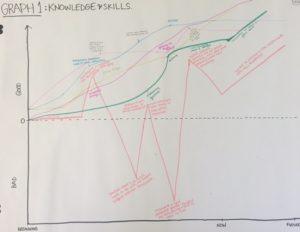
Graph 1 – Knowledge and Skills
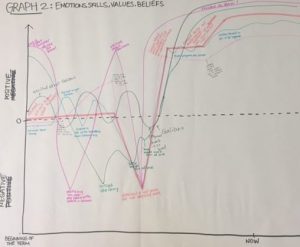
Graph 2 – Emotions, Skills, Values, and Beliefs
Why the graphs?
During our tutorial, we participated in a “Moment of Significant Change” workshop. First, we individually created two graphs, one revealing our emotion, skills, values, and beliefs, throughout the semester (and of course our project), and the other revealing our knowledge of skills. Combined into two larger graphs, we were able to take a look at our journey as a group in LFS 350.
Overall, our experiences were somewhat similar! From the knowledge and skills set graph, the general trend can be observed – steady increase and slight drop in-between, and followed by a continual rise.
In the beginning of the course, we were unsure about what to expect, but throughout the weeks, we realized that we were enhancing our knowledge on issues we’ve touched on before in LFS 250 such as food security. We also continuously gain knowledge on concepts that we have not learned before, like food justice and community food security. There were many times when we had to action before we knew exactly what to do, yet again and again, we successfully accomplished tasks that we thought were beyond our ability. Later in the course, after we got our proposal mark back, we started to have doubts about our ability to do proposal and our ability to interpret instructions given.This is where most of us had a breakdown moment, noted by the unanimous dip in the middle of graph (which also corresponds to the plunge in the second graph. However, this setback provided a great opportunity for us to increase our knowledge, as well as teamwork! With confusion about where we lost marks for the proposal, we met with our TA and received feedback as to how specific sections of our report can improve. The doubt that rose during our initial failure served as a motivation boost and increased communication between us through our common goal to ace the final report. Just as Lee. S. Shulman said in his article Pedagogies of Uncertainty, “without a certain amount of anxiety and risk, there’s a limit to how much learning occurs”. We started off with limited background knowledge and we experienced difficulties and challenges but the uncertainty pushes us to work harder and surpass our limits. We believe no one can learn from an experience that is all sunshine and rainbows. And hey, not everyday is a Sunday! We agree that failures are beneficial for us because they prepare us for tougher challenges that we may encounter in our futures. We also realized that working as a group requires more coherence and we definitely need to put in more collaborative time and effort.
Another turning point of our emotions and knowledge is when we realize the gap between our study outcomes and our proposal. Before our trip to Galiano Island, our objective was to analyze how residents survive in times of ferry stoppages which may affect food availability on the island. However, through conversations with the food program organizers as well as residents at the local market, we were surprised to find that ferry stoppages are not a major concern due to adequate local food production. Instead, insufficient water resources and extreme weather events that cause severe damages to the island infrastructure are having a stronger impact on food security on the island.
Furthermore, our situation was very similar to Dan Barber’s experience which he described in the podcast This American Life – Poultry Slam 2011: Act 3: Latin Liver. To summarize the podcast, Barber was trying to apply the method to grow geese from a Spanish farmer to his farm in New York. After years of trying, Barber’s goal was unsuccessful. Barber realized that there are many confounding factors in his mission, for example, the climate in Spain and New York. Similarly, we realized that we experience this as well. Whenever we are given an assignment or the blog posting, Will and our TA gave a brief objective and how to go about the work. In class, we always think that making a blog is doable because we have all the materials to craft the document. But in reality, it is not as easy as just a-b-c. There are more to to think about beyond using materials to construct a great blog. It is how we use the materials that we have in order to make a good blog post. This is where the challenge lies. Just when we think we have done a good job, when we submit it, we realized that we missed a lot of points that we were supposed to do.
Nonetheless, it is after our Galiano Island visit that our knowledge and skills significantly improved. Throughout the whole trip, we had the opportunity to learn more about the food system on the island via in-person interviews, online survey feedback, chatting with the residents, and also through observations. We feel that we have worked together cohesively within our group, our TA, and also with Jane. Through this, we were able to expand our knowledge so much from the residents. For the future, we hope that our knowledge and skills will continue to grow as we come to an end in LFS 350 and advance in our lives.
The Graceful Dismount
The Graceful Dismount: Our strategy for successful project completion
- Understand each group members’ personal lines of the “Moments of Significant Change” and make sure there is mutual understanding of each group members thoughts and process throughout the project.
- Read over the constructive criticism from group members to work on our weaknesses.
- To keep group assignment deadlines in mind and divide tasks ahead of time. By doing so, each group member can start working on their assigned parts early to avoid conflict with other course assignments and exams.
- To embrace different thoughts in the group on interview, survey and observation results in order to achieve a more comprehensive and wholesome interpretation of our study outcomes.
- To reflect on our own and also other group members’ contribution to the project and give one another constructive feedback about possible improvements in the remainder of the term.
- To consult our TA and community partner about their expectations of our final report and presentation.
- Start to prepare our presentation and make sure to cordially invite our community member, Jane, to our final presentation of our project for viewing.
- Make sure every group member is on the right track to ending the term with the ideal emotions, skills, values, beliefs, and knowledge; in order to do this, we will make a schedule this Wednesday to ensure tasks are completed to each group members discretion.
Pictures From Our Trip
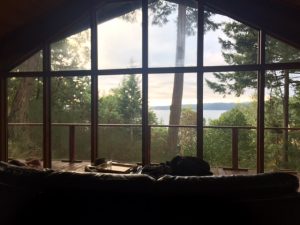
The view from our cabin
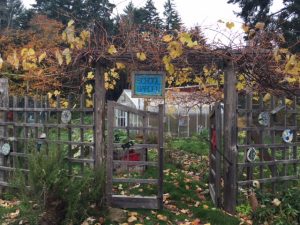
Entrance to school garden where we helped to rake leaves and dig out compost beds
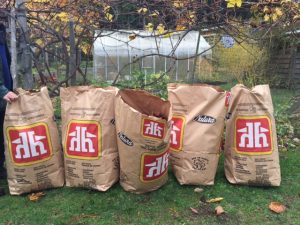
Fallen leaves for garlic beds at the Garlic Co-op
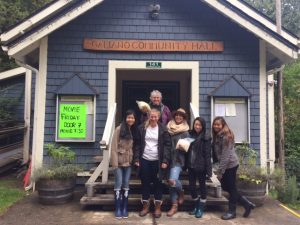
In front of the Hall with Jane
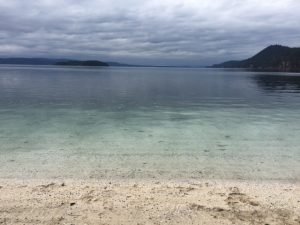
The white “sand” beach at the Montague Harbor. Those are actually shellfish, not sand!
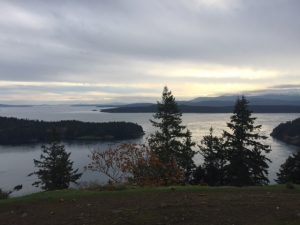
View on top of The Bluffs
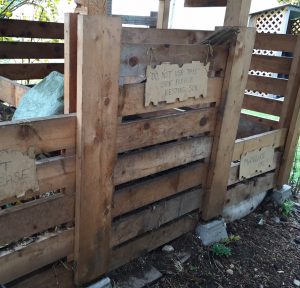
Compost bins at the school garden
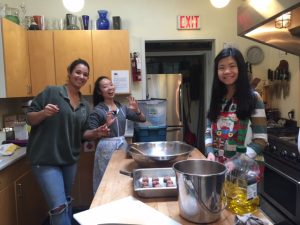
Cooking at the Hall
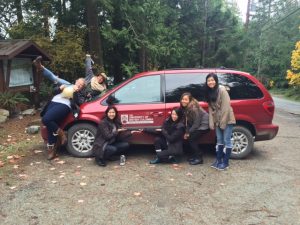
A full group picture with our LFS minivan ♥ … and our bag of spaghetti on the left. We did our best to blend in with the Galiano residents, but unfortunately they knew that we were impastas 🙁
Reference
Glass, I. (2011, December 2). Act Three. Latin Liver. This American Life Podcast. Podcast retrieved from https://www.thisamericanlife.org/radio-archives/episode/452/poultry-slam-2011?act=3
Shulman, L. S. (2005). Pedagogies of uncertainty. Liberal Education, 91(2), 18–25. Retrieved from http://files.eric.ed.gov/fulltext/EJ697350.pdf
Now, the moment we’ve all been waiting for!
Q: What do you call a cheese that is not yours?
A: Nachos cheese!